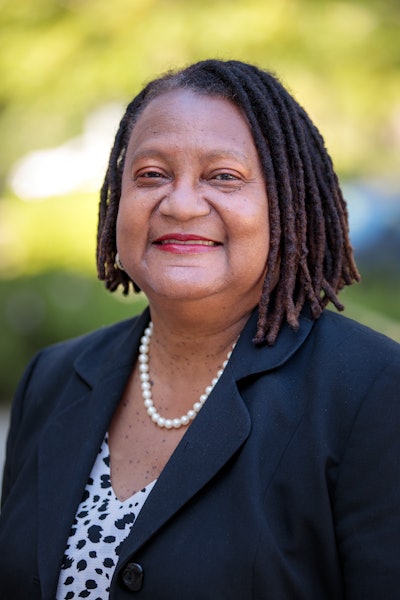The death of a fellow Black female physician, Dr. Susan Moore, age 52, during the early days of COVID-19 was painful and personally resonated with me. Her documentation of her perceived mistreatment and unequal treatment because of her race during her hospital stay because of a COVID-19 illness, provided a real time case study on ongoing issues in health care. As a Black female physician who teaches medical and health profession students and residents, I specialize in the areas of health disparities in racial/ethnic minorities often fueled by a lack of cultural competency and humility in health care providers.
 Dr. Pamela-Payne Foster
Dr. Pamela-Payne FosterMy lecture usually starts with a discussion of the one of the seminal research studies in health disparities literature conducted in 1999 which implied that provider bias could potentially affect patient outcomes. The study, often referred as the “Georgetown Study” led by Dr. Schulman of Georgetown University where standardized patients were given similar cardiac symptoms and physicians were asked to prescribe treatment. The only differences in the patients was that some were Black, some white, some female, some male.
The results of study was that the physician participants prescribed cardiac catherization treatment less frequently for women and Blacks. The newspaper headlines read: “Is there racism and sexism in medicine?” I suspect that if we asked those physician participants if they were “racist or sexist” that they would vehemently deny that they were. But the Georgetown Study suggested that my colleagues don’t know what they don’t recognize.
Since that time, more and more studies have suggested that cultural bias is a real phenomenon in medicine and healthcare and attempts to address this bias through cultural competency training for current health care providers is important and needed. But providing mandatory training to move providers closer to being cultural competent is not enough.
I would suggest increasing the number of physicians who look more like Dr. Moore is key and crucial. We need more Black physicians in order to close health disparity gaps. In the academic school year 2018-19 in the United States, 6.2% of medical school graduates were Black or African American. But even more grim statistically, while Black male medical students accounted for 3.1% of the national medical student body in 1978, in 2019 they accounted for just 2.9%; And we know without the contribution of historically Black medical schools, just 2.4% would be Black men. These numbers are embarrassingly low and redress a crisis. Of course, this issue is not new.
But I think one key to increasing our numbers is to look at and duplicate the history and success of the historically Black colleges and universities (HBCUs) to provide the pipeline for Black students to enter and graduate from medical school. The success of HBCUs as pipelines for the production of Black physicians is attributed to their history as institutions that were designed to support African American students by providing an educational learning environment that caters to their unique challenges and cultural understandings. In a recent article in 2017 by Dr. Marybeth Gasman and colleagues, they suggest that “continuing to create partnerships with medical schools and creating more opportunities for Black students will be pertinent to diversifying the medical field”.
Recently, I was elated to hear that the Predominately White Institution where I work had just signed a formal agreement with a HBCU in the state, Oakwood College to prime the pipeline in order to increase its students into the University of Alabama at Birmingham School of Medicine. This new Initiative comes under the leadership of the school’s first Black Dean, Dr. Selwyn Vickers. This program and other formal structures and programs which recognize and rely on the great legacies of HBCUs is a great step in the right direction.
Dr. Pamela Payne-Foster is a preventive medicine/public health physician and professor of community medicine and population health at the University of Alabama where she also serves as deputy director for Community Outreach for the College’s Institute for Rural Health Research.





















